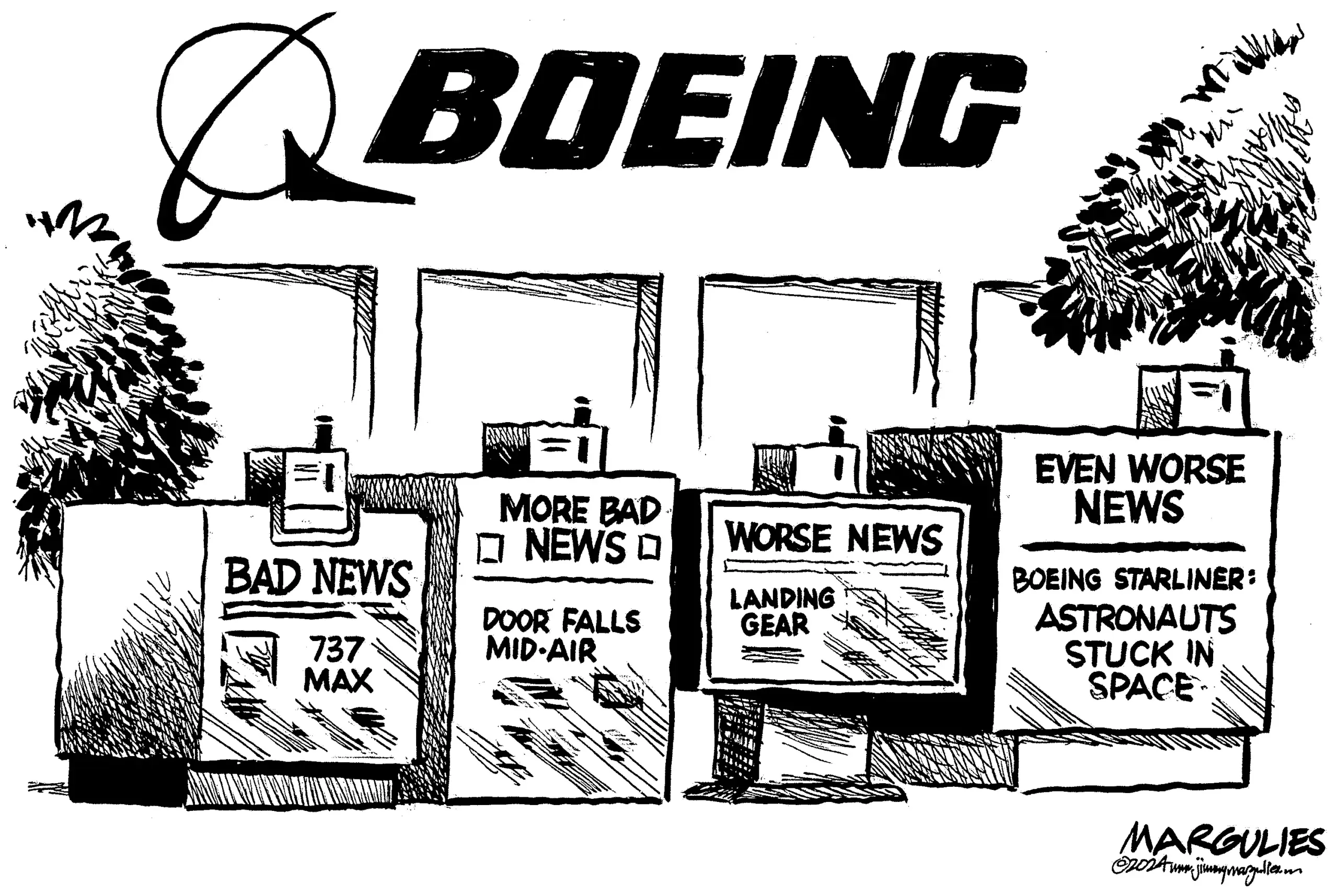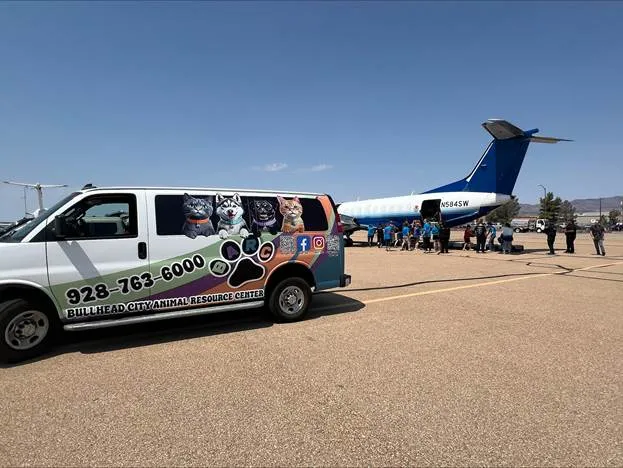ARIZONA — Boeing has announced a significant reduction in its workforce, planning to lay off 17,000 employees—approximately 10% of its global staff—as part of a massive cost-cutting drive. The aerospace giant’s decision affects facilities across the United States, including a substantial impact on its plant in Mesa, Arizona.
The Mesa facility, renowned for producing the AH-64 Apache attack helicopter for the U.S. Army and international customers, is experiencing layoffs that reflect Boeing’s broader strategy to realign its workforce amid financial and regulatory challenges. According to official notices filed with Arizona state agencies, 184 employees at the Mesa plant have been notified of their impending layoffs.
The reductions at the Mesa facility are part of Boeing’s nationwide effort to streamline operations across its commercial airplanes, defense, and global services divisions. While the company has not indicated plans to cease operations in Mesa, the layoffs represent a significant workforce reduction that could impact production capacity and local economic stability.
Boeing’s layoffs come in the wake of ongoing financial difficulties and heightened regulatory scrutiny. The company’s troubles began after two fatal crashes of its 737 MAX jetliners in 2018 and 2019, which resulted in the deaths of 346 people. These incidents led to a global grounding of the 737 MAX fleet and intense investigations into Boeing’s safety practices and corporate governance.
In January 2024, Boeing faced additional setbacks when a panel blew off the fuselage of an Alaska Airlines plane, raising further concerns about manufacturing quality and aircraft safety. The Federal Aviation Administration (FAA) subsequently imposed production limits on Boeing, capping the production of the 737 MAX at 38 planes per month—a threshold the company has struggled to meet.
Compounding Boeing’s challenges was a nearly two-month strike by its unionized machinists, which began in August 2024. The strike involved 33,000 workers across various facilities, including those connected to the Mesa plant. Workers protested for better wages, job security, and working conditions.
The strike ended earlier this month after the International Association of Machinists and Aerospace Workers (IAMAW) voted to accept Boeing’s fourth contract offer, which included a 38% wage increase over four years and a $12,000 ratification bonus for each worker. While the resolution allowed production to resume, the strike disrupted Boeing’s operations and added to financial strains.
Boeing CEO David Calhoun addressed the layoffs during an October call with analysts, stating that the reductions were necessary due to overstaffing and not solely because of the strike. ”We must reset our workforce levels to align with our financial reality,” Calhoun said. ”There is much work ahead to return to the excellence that made Boeing an iconic company.”
Calhoun emphasized the need for Boeing to focus on quality workmanship, safety, and rebuilding trust with customers, regulators, and employees. He acknowledged the challenges ahead in revamping the supply chain and meeting production targets in a constrained environment.
The layoffs at the Mesa facility have raised concerns about the economic impact on the local community. Boeing is one of the largest employers in the region, and its presence has been a cornerstone of Arizona’s aerospace and defense industry. The job cuts are expected to have ripple effects on the local economy, affecting not only the displaced workers and their families but also suppliers, contractors, and businesses that rely on Boeing’s operations.
State and local officials are mobilizing resources to support affected workers. The Arizona Commerce Authority has announced plans to coordinate with workforce development agencies to provide job placement services, retraining programs, and counseling. Educational institutions in the area are exploring opportunities to offer certification programs and skills training to help workers transition to new roles within the aerospace sector or other growing industries in the state.
Mesa Mayor John Giles expressed his concern over the layoffs but remained hopeful about the city’s economic resilience. ”Boeing has been a vital part of our community for decades,” Giles said. ”We are committed to supporting the affected employees and will work closely with state and federal partners to mitigate the impact on our local economy.”
The Society of Professional Engineering Employees in Aerospace (SPEEA), representing engineers and technical workers at Boeing, reported that over 400 of its members nationwide received layoff notices, including employees at the Mesa plant. Affected workers will remain on the payroll through mid-January 2025.
Ray Goforth, SPEEA’s executive director, expressed disappointment over the layoffs. ”Our members have contributed significantly to Boeing’s success,” Goforth said. ”We understand the company’s need to adjust to market conditions, but we are concerned about the loss of talent and the impact on our communities.”
Laid-off employees are eligible for severance packages, which typically include one week of pay for every year of service. Boeing is also providing career transition services and subsidized health care benefits for up to three months. The company stated that it is committed to treating all employees with respect and dignity during the transition.
As Boeing navigates through these challenges, the company’s focus is on stabilizing its financial position and restoring confidence among stakeholders. For the Mesa plant, maintaining its role in producing the Apache helicopter remains critical. The facility’s future will depend on Boeing’s ability to secure new defense contracts, optimize production processes, and possibly diversify its product offerings to adapt to changing market demands.
Industry analysts highlight the complexities involved in Boeing’s recovery efforts. Cai von Rumohr, an aviation analyst at financial services firm TD Cowen, commented on the difficulties of ramping up production and reviving the supply chain after disruptions. ”Restarting production is not as simple as flipping a switch,” von Rumohr said. ”Boeing will need to address supplier readiness, workforce training, and quality control to meet its targets.”
Sandra Watson, President and CEO of the Arizona Commerce Authority, emphasized the state’s resilience. ”While Boeing’s layoffs are unfortunate, Arizona’s aerospace industry remains strong,” Watson said. ”We are home to a diverse range of aerospace and defense companies, and we will continue to support growth and innovation in this critical sector.”
—Jeremy Webb









